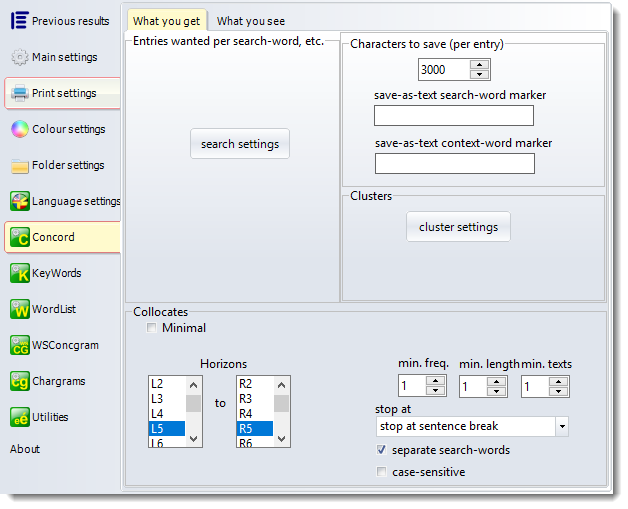Search Settings
The search settings button lets you choose these settings:
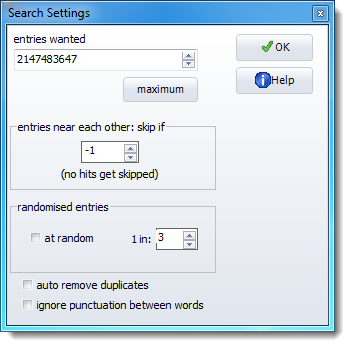
Entries Wanted
The maximum is more than 2 billion lines. This feature is useful if you're doing a number of searches and want, say, 100 examples of each. The 100 entries will be the first 100 found in the texts you have selected. If you search for more than 1 search-word (e.g. book/paperback), you will get 100 of book and 100 of paperback.
entries near each other
allows you to force Concord to skip hits which are too close to each other. If for example you set this to 0 or 1 and your text contains
... a lovely lovely day
then you will only get the first of these cases if searching for lovely. The default here is -1. (If you set it to 0 then you are only allowing one hit within any given word, e.g. a search for *l* will only hit each of the lovely words once although there are two ls in that word.)
randomised entries
This feature allows you to randomise the search. Here Concord goes through the text files and gets the 100 entries by giving each hit a random chance of being selected. To get 100 entries Concord will have to have found around 450-550 hits with the settings shown below. You can set the randomiser anywhere from 1 in 2 to 1 in 1,000. See also: reduce to N.
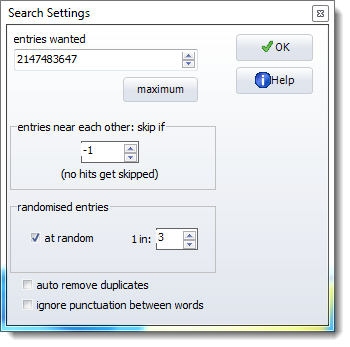
auto remove duplicates: removes any lines where the whole concordance entry matches another. (This can happen if you have a corpus where news stories get re-published in different editions by different newspapers.)
Ignore punctuation between words: this allows a search for BY ITSELF to succeed where the text contains ...went by, itself
Characters to save
Here is where you set how many characters in a concordance line will be stored as text as the concordance is generated. The default and minimum is 1000. This number of characters will be saved when you save your results, so even if you subsequently delete the source text file you can still see some context. If you grow the lines more text will be read in (and stored) as needed. There are examples here.
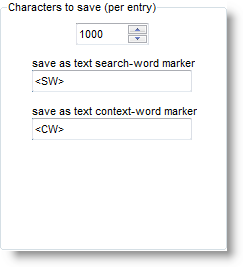
Save as text search-word or context-word marker: here you can also specify markers for your search-word and context-word.
Collocates
By default, Concord will compute collocates as well as the concordance, but you can set it not to if you like (Minimal processing). For further details, see Collocate Horizons or Collocation
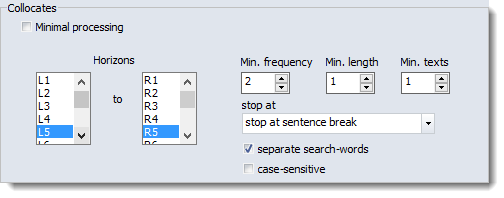
The minimum frequency and length refer to the collocates to be shown in your listing. With the settings above, only collocates which occur at least 5 times and contain at least 1 character will be shown as long as they don't cross sentence boundaries.
If separate search words is checked and you have multiple search-terms, then you get collocates distinguishing between the different search-terms. If you want them amalgamated, clear this check-box.
Collocates relation statistic
Choose between Specific Mutual Information, MI3, Z Score, Log Likelihood, Dice. See Mutual Information Display for examples of how these can differ.
|

